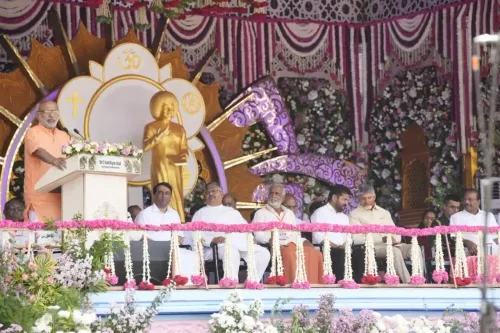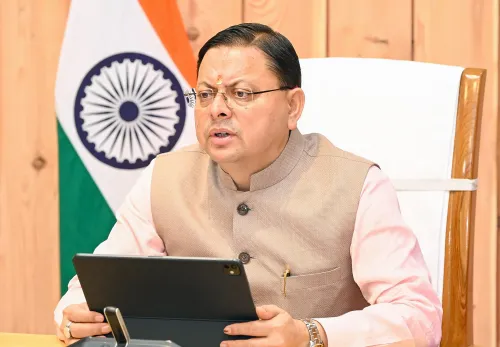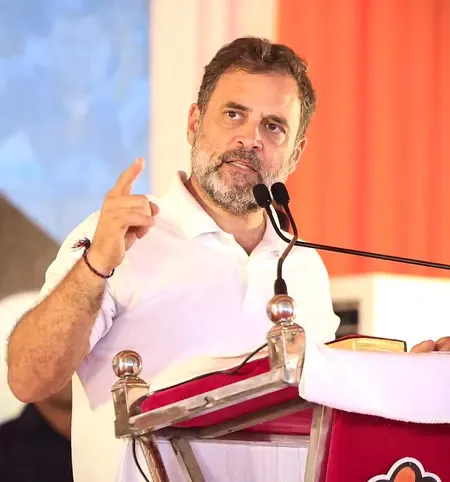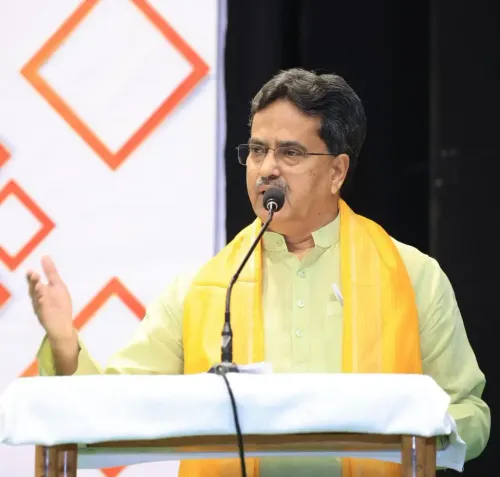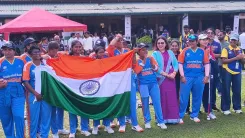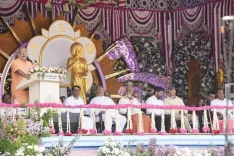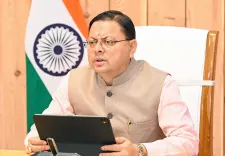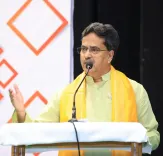Will No Kunbi Certificates be Issued Based on Flawed Documents?
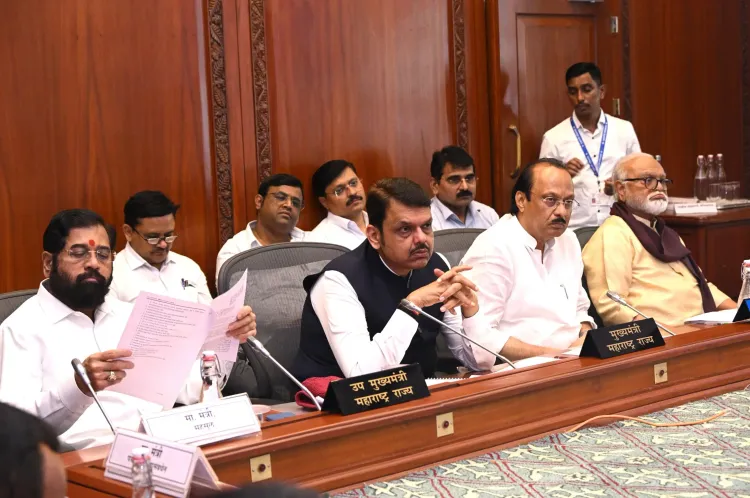
Synopsis
Key Takeaways
- No Kunbi certificates will be granted based on inadequate documentation.
- A genealogy committee has been established for verifying caste certificates.
- Funds and resources are dedicated to supporting the OBC community.
- The government is committed to ensuring justice for all communities.
- Legal action will be taken against fraudulent practices.
Mumbai, Oct 4 (NationPress) In response to the ongoing protests regarding reservations in Maharashtra, Chief Minister Devendra Fadnavis emphasized on Saturday that the government's primary responsibility is to ensure that no community, including OBCs, suffers injustice due to the misuse of its policies.
He stood by the government's choice to implement the Hyderabad Gazette for granting Kunbi certificates to the qualifying Marathas, firmly stating that no individual will be awarded a Kunbi certificate based on flawed documentation.
During a meeting with OBC delegations, who were demanding the withdrawal of the government resolution issued on September 2 for granting Kunbi certificates to Marathas with the necessary documentation, he remarked, “Marathwada was governed by the Nizam, not the British. Hence, the Hyderabad Gazette, derived from records there, has been validated. It is vital to ensure that no injustice befalls anyone recognized as a Kunbi. The law has been strictly adhered to while issuing the government resolution, and concerns that certificates could be obtained solely through marriage or affidavits are unfounded. Proper regulations have been established to outline the process for issuing caste certificates and verifying them. A genealogy committee has been constituted to issue caste validity certificates, and all issued certificates will undergo further examination by this committee.”
Fadnavis also announced the formation of a separate cabinet sub-committee for the OBC community, which has been granted cabinet-level powers to oversee all state schemes.
“Numerous corporations have been established for various sub-castes within the OBC category, and these corporations have been provided with share capital. We have resolved to implement the initiatives of the Annasaheb Patil Economic Development Corporation for these corporations,” he added.
The Chief Minister reiterated that the state government consistently makes decisions within legal boundaries and aims to ensure that no community, including OBCs, is wronged by any misuse of its directives.
“The government is dedicated to delivering justice to every community,” he assured.
Fadnavis noted that essential funds have been allocated to the Mahatma Jyotiba Phule Research & Training Institute (MAHAJYOTI), dedicated to promoting comprehensive development for Other Backward Classes (OBC), Deprived Castes, Nomadic Tribes, and Special Backward Classes in the state.
He revealed that Rs 1500 crore has been distributed this month to support this initiative.
The Chief Minister mentioned that 63 hostels have been established for OBCs across the state. Furthermore, all the initiatives of the Annasaheb Patil Economic Development Corporation have been implemented within these corporations for other backward classes.
Deputy Chief Minister Eknath Shinde stated that while providing reservations to any community, it is crucial to ensure that the rights of others are not compromised.
“The government's policy is to ensure justice for OBCs, SCs, STs, and all other groups. Decisions will be made within legal parameters. Issuing false certificates constitutes a crime, and legal action will ensue in such cases,” he assured.
Deputy Chief Minister Ajit Pawar affirmed, “Our position is that no community should face injustice. Scheduled Castes and Scheduled Tribes continue to experience social deprivation. Thus, both Central and State Governments are executing various schemes for their advancement. The government is also devoted to guaranteeing equal opportunities for other categories. The State Government regularly allocates necessary funds to MAHAJYOTI and similar institutions.”

